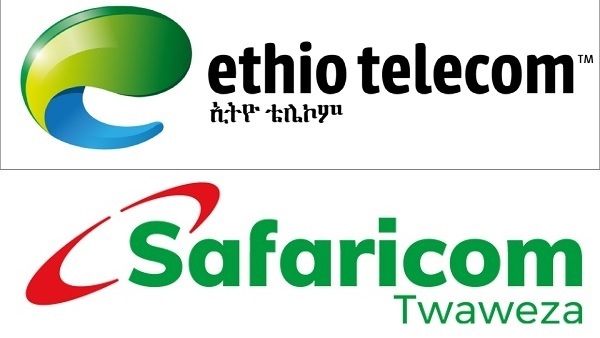
Ethiopia’s announcement in June that it would open key economic sectors to private investment signals the new administration’s intent to reform the economic system of the past three decades.
It was in the mid of June when Ethiopia was awarded its first private telecom license it is encouraging and proves the real commitment to implement the promised reform and liberalization of the economy and believed paves the way to open up Ethiopia’s tightly controlled economy of over 110 million people.
In recent development the government of Ethiopia issued calling for bids for its second full-service telecoms operating license with a view to completing the process early next year.
The Ethiopia Herald had approached Niyala Insurance Company Micro Finance Business Manager Solomon Zegeye. He noted that it is great to move and it should be sustained because it adds values of efficiency in many ways.
According to him, privatization has pros and cons. “To me Ethiopia should benchmark Kenya, South Africa, Nigeria because they had experienced and one step ahead and the regulatory frame should be well framed to increase the efficiency of the various sector performances.
It is fundamental to ensure reliable job creations and technology transfer and let public institutions to focus on honing quality services delivery, we know public institutions had been consumed on monopolizing the various sectors.”
According to the Regulatory body the Ethiopian Communications Authority (ECA) published its Request for Proposals (RFP), slightly later than planned. Would-be market entrants have until 20 December to submit their bids, with the license due to be handed over to the winner in January.
Ethiopia has often been described as the last great market liberalization opportunity in the telecoms sector, but various complications meant that the government struggled to attract interest in the process first time around; its attempts to issue two licenses earlier this year drew only two bidders and resulted in the issue of just one license.
A consortium headed up by Safaricom picked up the license for USD 850 million, while a USD 600 million offer from MTN-led group failed to pass muster with the state. It might never known whether the bid was simply too low, or whether there were political factors at play.
The government has addressed some of the issues that likely influenced the decisions of those who ultimately decided not to participate first time around. Chief among those was a ban on the provision of mobile financial services, which left incumbent and now former monopoly player Ethio Telecom with a period of exclusivity for its Telebirr service, launched in May. The ECA issued a statement in August disclosing that a permit to offer mobile financial services would come with the new license, and that fact is confirmed in this week’s RFP.
The ECA also said “additional spectrum allocation has been considered,” and will apply to all licensees – the Safaricom group, Ethio Telecom, and the newcomer.
In addition, the second license “will have revised pre‐qualification criteria to include participation from a wide range of international and national telecommunications operators,” the ECA said, without going into further details.
One potentially interested party is Orange, whose participation in the first licensing contest was widely discussed, although it ultimately decided against tabling an offer. Reports that the financial services issue was the biggest stumbling block for the French telecom group appeared to be confirmed in July when it emerged it had pledged to take part in the privatization of Ethio Telecom, whose mobile money service is apparently attracting subscribers in their millions. Orange itself did not make an announcement, but Henok Teferra Shawl, Ethiopia’s Ambassador to France, Spain, Portugal, the Holy See and Monaco, revealed that the operator had submitted interest to take part in the sale of a 40 percent stake in Ethio Telecom.
As it turns out, that does not rule Orange out of the contest for the second license though. The ECA has made it clear that the partial privatization process will be completed before the deadline for the submission of applications for the new license.
And while Bharti Airtel ruled itself out of the process earlier this year, but may well look again, given the revised conditions, while Etisalat has often been named as a possible bidder. We will find out in the fullness of time how attractive those conditions are to the international telco groups Ethiopia hopes to attract; it’s probably fair to say that many big operators will at least take a look. MTN is unlikely to be among them though, with reports emerging last month that the telco will not return to the contest after its failure last time round.
As ever, the government remains upbeat about the licensing process.
“The goal of liberalizing our telecoms sector has always been to drive competition and attract greater private sector investment as a key part of Ethiopia’s digital transformation,” Balcha Reba, Director General of the ECA said.
“Following our successful first license issuance earlier this year to one of the world’s largest international telecoms consortia, we have continued with our mission and now want to encourage more telecoms operators, of all sizes, to be part of this exciting opportunity,” he said.
He further stated: “The ECA remains committed to fulfilling Ethiopia’s telecommunications sector reform and this second license issuance is another opportunity for another telecoms operator to join Ethiopia’s fast growing economy next year.”
And we will probably have to wait until next year to find out which telcos are – or were – keen to chase that opportunity.
An agreement reached between Ethiopia’s integrated telecommunication services provider Ethio telecom and Kenyan mobile network operator Safaricom to apply equal termination tariff rate on voice calls-Ethiopia Semonegna
BY MENGISTEAB TESHOME
THE ETHIOPIAN HERALD OCTOBER 12/2021





